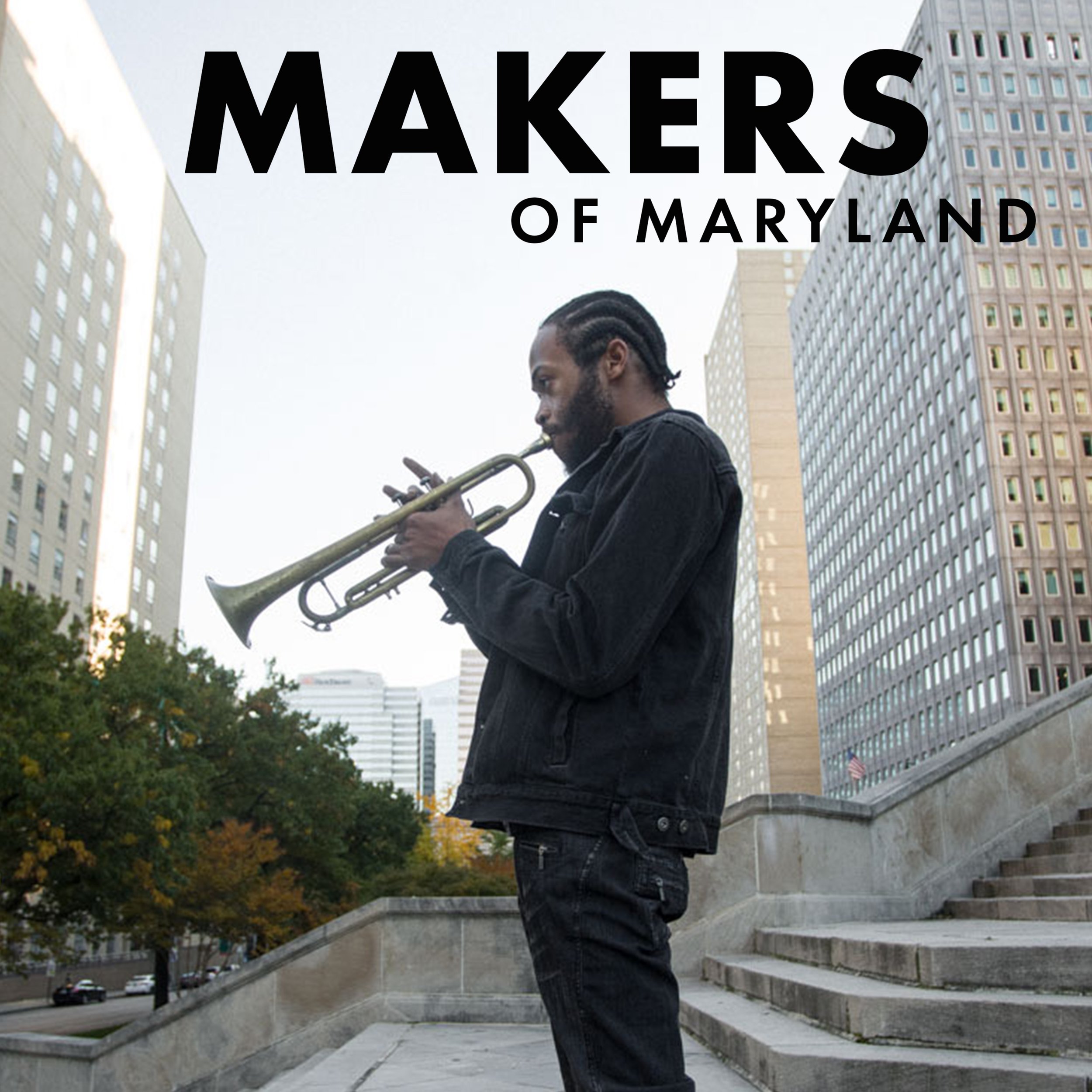Archive
- November 2025
- September 2025
- July 2025
- June 2025
- April 2025
- March 2025
- February 2025
- January 2025
- November 2024
- October 2024
- December 2023
- November 2023
- September 2023
- March 2023
- February 2023
- January 2023
- December 2022
- November 2022
- October 2022
- September 2022
- August 2022
- July 2022
- June 2022
- May 2022
- March 2022
- December 2021
- November 2021
- October 2021
- September 2021
- August 2021
- July 2021
- June 2021
- May 2021
- April 2021
- March 2021
- February 2021
- December 2020
- November 2020
- October 2020
- September 2020
- August 2020
- July 2020
- June 2020

Different Regard
In this episode of Makers of the USA, host Kristan Vermeulen sits down in her hometown of Baltimore with Steven White, co-founder and creative director of Different Regard, a sustainable fashion house known for its handcrafted suits, gowns, and bespoke apparel for men and women. Steven shares how a diagnosis with narcolepsy led him to pursue his passion for fashion, how Different Regard grew from a small T-shirt company into a full-scale design and manufacturing studio, and how he’s using his craft to build opportunity in Baltimore’s maker community.
From sourcing materials locally and training youth in the art of sewing to building a multi-cultural team and bringing design innovation to airport retail, Steven is redefining what it means to be a modern American designer — blending precision, sustainability, and heart.

Smith Island Bakery
Smith Island located in the Chesapeake Bay is an experience many do not know about. As a child, Kristan grew up listening to her grandfather share stories of the island and how the island people have their own language that can be quite hard to understand. Most Smith Islanders descend from 17th-century settlers, most of whom arrived in Maryland and Virginia from southwest England and Wales. The island is known for its soft shell crabs, its mail boat that is also the ferry to get on and off the island and the most important -- The Smith Island Cake, the Maryland state cake. Kristan speaks to Kathey Jones who is the baker who owns and operates The Smith Island Bakery which is located on the island. Kathey did not grow up on the island as she grew up in Baltimore but her and her family vacationed here frequently and they fell in love with it. Her entire family is a part of her business as they help with baking, cutting up the cakes, boxing up the cakes to be shipped out, and manning the gift shop that is attached to the bakery and much more. Tune in to hear more about Kathey's experience keeping these delicious cakes baked on Smith Island, what her take is on the history of the cake, how its like living on the island and much more.

Cravin Crabs
Barry Koluch grew up in a household where fishing, crabbing, and hunting were just a normal part of life. After graduating from high school, he went on to receive a Bachelor's of Science Degree in Marketing from Salisbury University, always staying close to the Chesapeake Bay. During and after college, Barry was always working weekends on his father’s crabbing boat. After spending a few years in corporate sales, Barry took his passion for crabs and turned it into a business, Cravin Crabs. He started the business with his father Paul Koluch whose entire life revolves around the outdoors. Paul worked and retired from Baltimore Gas and Electric with 37 years of service, while his passion truly remained on the water. For Paul, crabbing always held a special place in his heart, and he easily made the decision to become a Full-Time Commercial Waterman. Tune in to learn more about the Koluch family and how they started Cravin Crabs, how they go about catching crabs on a daily basis and how to eat crabs the Maryland way. Also, stay until the end to hear a special tune from John Patti and to hear news about an upcoming Makers of the USA event.

Deanna Bogart
Deanna Bogart traveled around the country as a young girl, partaking in talent shows at the various schools she attended and seeing her family members express themselves through music which she soon learned she shared the same passion. At age 17 she picked up her guitar and traveled to Los Angeles to give her music career a go in the Hollywood area but then traveled back to the east coast to join a friend's band. While she loved vocals and performing at various shows in the Baltimore area, she found that her true calling was the saxophone. Others in the music industry would mention to her "Girls play the clarinet, not the saxophone". Well, Deanna has proven to be one of the best saxophone players and female musicians in the world. She has played with other renowned artists such as Jimmy Buffet, B.B. King, and much more. Tune in to learn more about Deanna's music career, her experiences performing with other renowned musicians, and what it means to be a maker connected to the Maryland community.

228 Grant Street
Kendal Brown, owner, founder, maker of 228 Grant Street Candle Co., was born and raised in Danville, Virginia, and during his childhood, his hometown offered little to no structure for an artsy kind of kid. He always thought he needed to do something with his hands before getting his hands into a craft. He studied religion and took on a career in ministry in DC. He then took on a different career path after coming out as a gay man and ventured to San Francisco to study theological education. But the word craft was still lingering in his head. It's his true calling. He dabbled in writing and art but the only craft that truly hit home with him that was a part of his creative process, the light of a candle, the scent the mood, it filled his creative soul. So candle making became his craft candles will be lit during his creative thinking time and to build on that craft and make it his own. He did some research and has now created a collection of his own in Baltimore.

Max’s Tap House
When you venture out into Fells Point which is located in the heart of Baltimore you will most likely stumble upon this maker's spot. Ron Furman built Max's on Broadway which is now Max's Taphouse from the ground up from the building renovations to the actual business and operations. He did it all and he certainly had fun along the way. Kristan got the grand tour of the facility which is quite the maze and she learned about Ron's journey from what the building was before it became Max's, how Max's went from a renowned concert venue to a tap house, and what he had to do to pivot operations during COVID.

Pete Ross
Pete Ross is a banjo maker, researcher, and musician who lives in Baltimore, Maryland. Pete is one of the earliest contemporary makers of gourd banjos, ranging from those of his own design to exact replicas of historic instruments. His reconstructions of eighteenth- and early nineteenth-century banjos have been featured internationally in museums, art galleries, movies, documentaries, and live performances. Tune in to learn more about Pete’s mentors, musicians he crafted banjos for, his time growing up in Maryland, the step-by-step process on how he crafts his banjos, and much more.

Brandon Woody
I think many would perceive this Baltimore maker as a jazz musician. But what Kristan found interesting while she was talking to this musician is that he doesn't define his music as jazz. He actually doesn't put a definition towards his musical craft. It is Brandon Woody's music, his craft, his passion, his story, his life. He grew up in the streets of Baltimore and grew a love for one of Kristan's favorite instruments, the trumpet, He has performed brass with local legends of the genre like Eric Kennedy and Jeff Reed, as well as DIY rappers with Abdu Ali and Al Rogers Jr. Lead open mic nights at the Motor House. He is an alum of Peabody Preparatory’s Tuned-In Program and the Brubeck Institute in California. He is a highly talented, expressive instrumentalist who brings a fiery flair to every set, he shares with Kristan the struggles he went through to get to where he is today.

Imperium Shaving
Who knew the finest razors would be handmade in a historic mill in Baltimore by a gentleman who turned a hobby into his full-time passion. His razor collection is made of various types of wood including maple, walnut, and much more that he locally sources from lumberyards. He continues to innovate his craft by playing around with the materials he uses to make his razors including a more budget-friendly option. Tune in to learn more about how Dan moved to Baltimore to start his business, how his business has continued to grow steadily but has made some minor downfalls along his business journey, how he crafted a razor that is worth over $1000 out of meteorite for a customer, and what he plans to do over the next five years.

Made In Baltimore
Andy Cook started an organization that was much needed for Baltimore. Baltimore continues to have a bad rep whenever you hear about it on the news but Baltimore is a community of makers, entrepreneurs, and craftspeople that lift up the heart and soul of the city. Andy's mission is simple, to encourage investment in Baltimore’s economy by growing the market for locally-made goods and supporting the people who make them. The program has a growing network of over 200 product-based businesses ranging from home-based makers to large-scale manufacturers.

